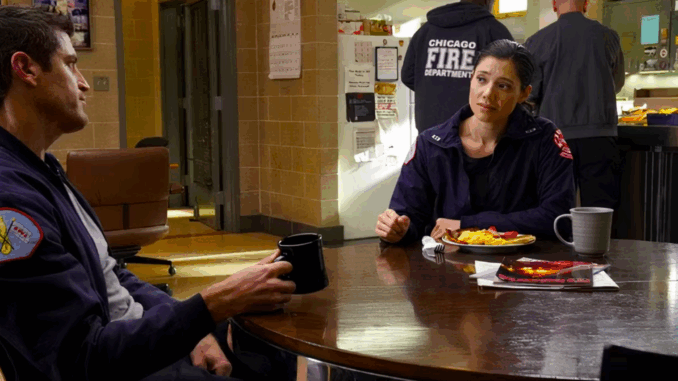
Paramedic Violet Mikami has been a fan-favorite for her humor, courage, and emotional intelligence. But in “Shadows in the Sky,” she faces a psychological crisis that pulls back the curtain on the hidden toll of life-saving work.
A Routine Call Turns Dark
Violet and her partner respond to a disturbing call: a failed teen suicide attempt on a rooftop. The boy survives — barely — but the encounter shakes Violet to her core. For the first time, she finds herself unable to compartmentalize. The call haunts her, replaying in her head long after her shift ends.
Unlike physical injuries, psychological wounds linger quietly. This episode shines in its subtlety: we see Violet smile for patients, joke with Brett, but the camera lingers just a bit longer after everyone walks away. Her facade is cracking.
PTSD in the Shadows

When she begins having panic attacks, Violet tries to shrug them off — until she freezes during a rescue, momentarily endangering a burn victim’s life. Chief Hawkins confronts her, not with discipline but with empathy. In a deeply moving exchange, he shares his own moment of doubt from early in his career.
Rather than glamorizing toughness, Chicago Fire chooses realism. It acknowledges that even the strongest fall, and real strength lies in getting help.
The Power of Support
What elevates this episode is how it treats healing. Violet seeks counseling, supported not only by Brett and Hawkins, but also Boden and even Gallo, who steps in with quiet encouragement. Their solidarity proves that Chicago Fire isn’t just about dramatic flames — it’s about human connection.
“Shadows in the Sky” stands as one of the show’s most compassionate episodes. It doesn’t just show a breakdown; it shows a path forward.
